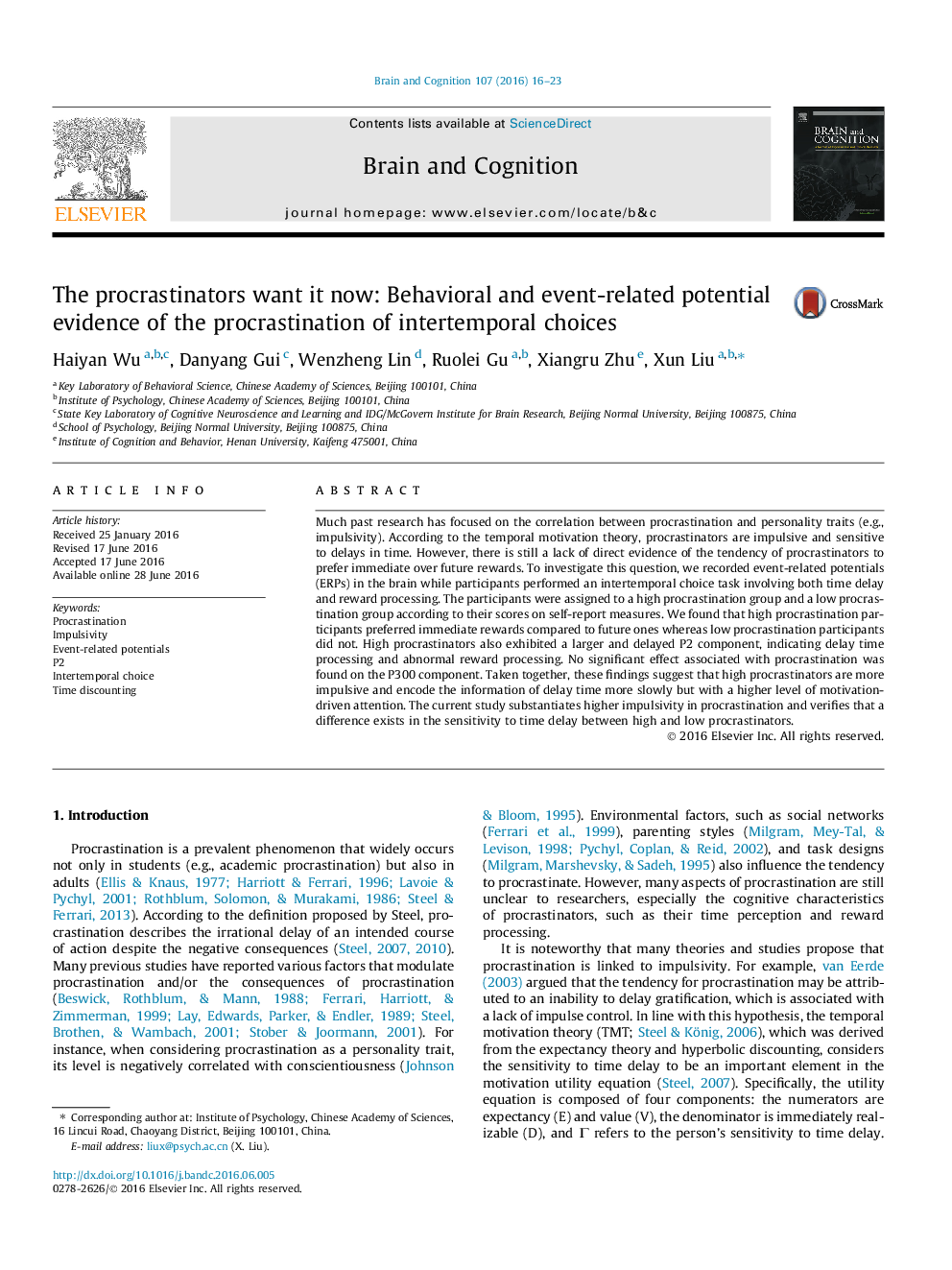| Article ID | Journal | Published Year | Pages | File Type |
|---|---|---|---|---|
| 924038 | Brain and Cognition | 2016 | 8 Pages |
•This study is the first ERP study on procrastination.•There were behavioral differences in delay time sensitivity between groups.•High procrastination participants preferred immediate than future rewards.•The P2 amplitude was highly sensitive to group difference.
Much past research has focused on the correlation between procrastination and personality traits (e.g., impulsivity). According to the temporal motivation theory, procrastinators are impulsive and sensitive to delays in time. However, there is still a lack of direct evidence of the tendency of procrastinators to prefer immediate over future rewards. To investigate this question, we recorded event-related potentials (ERPs) in the brain while participants performed an intertemporal choice task involving both time delay and reward processing. The participants were assigned to a high procrastination group and a low procrastination group according to their scores on self-report measures. We found that high procrastination participants preferred immediate rewards compared to future ones whereas low procrastination participants did not. High procrastinators also exhibited a larger and delayed P2 component, indicating delay time processing and abnormal reward processing. No significant effect associated with procrastination was found on the P300 component. Taken together, these findings suggest that high procrastinators are more impulsive and encode the information of delay time more slowly but with a higher level of motivation-driven attention. The current study substantiates higher impulsivity in procrastination and verifies that a difference exists in the sensitivity to time delay between high and low procrastinators.
